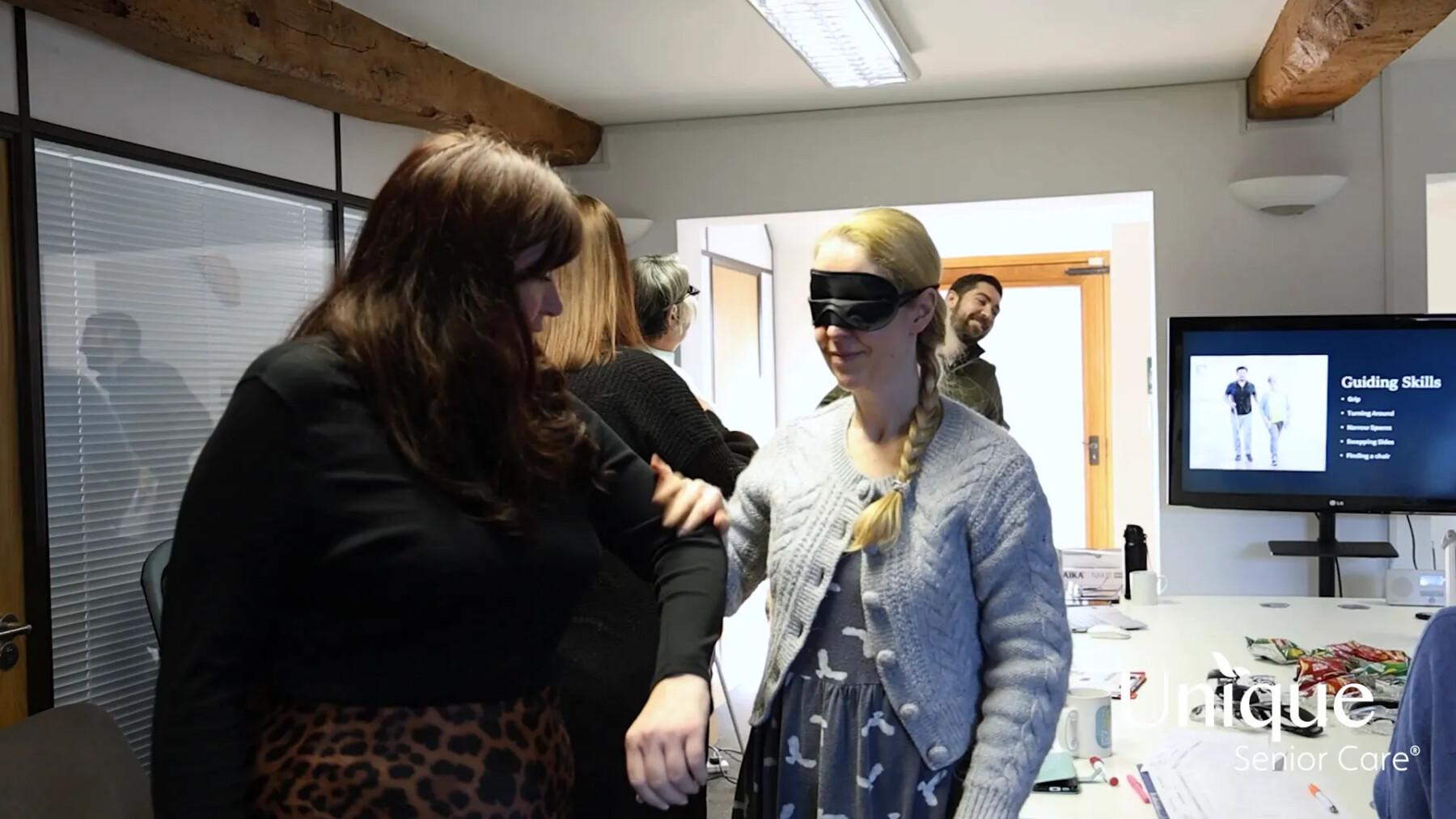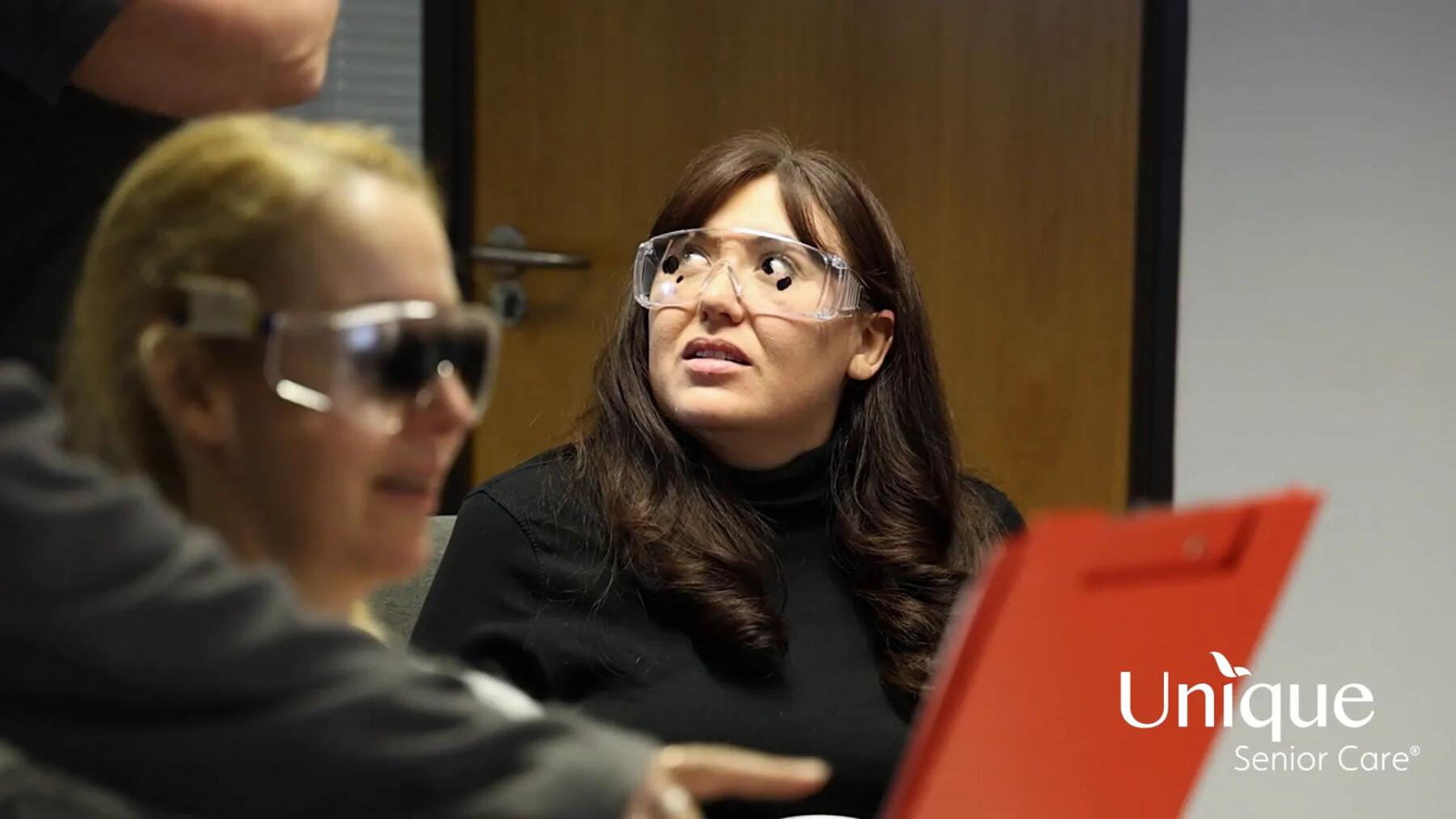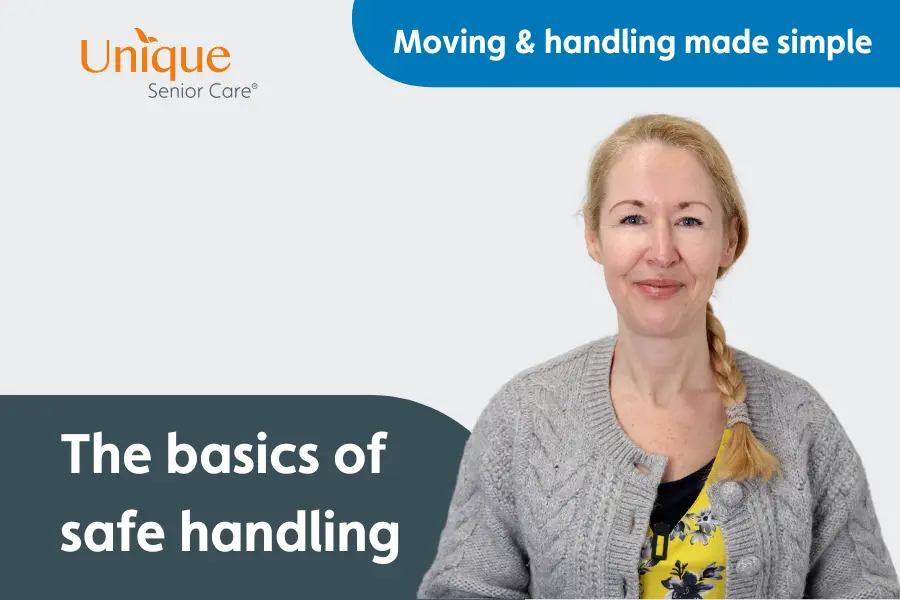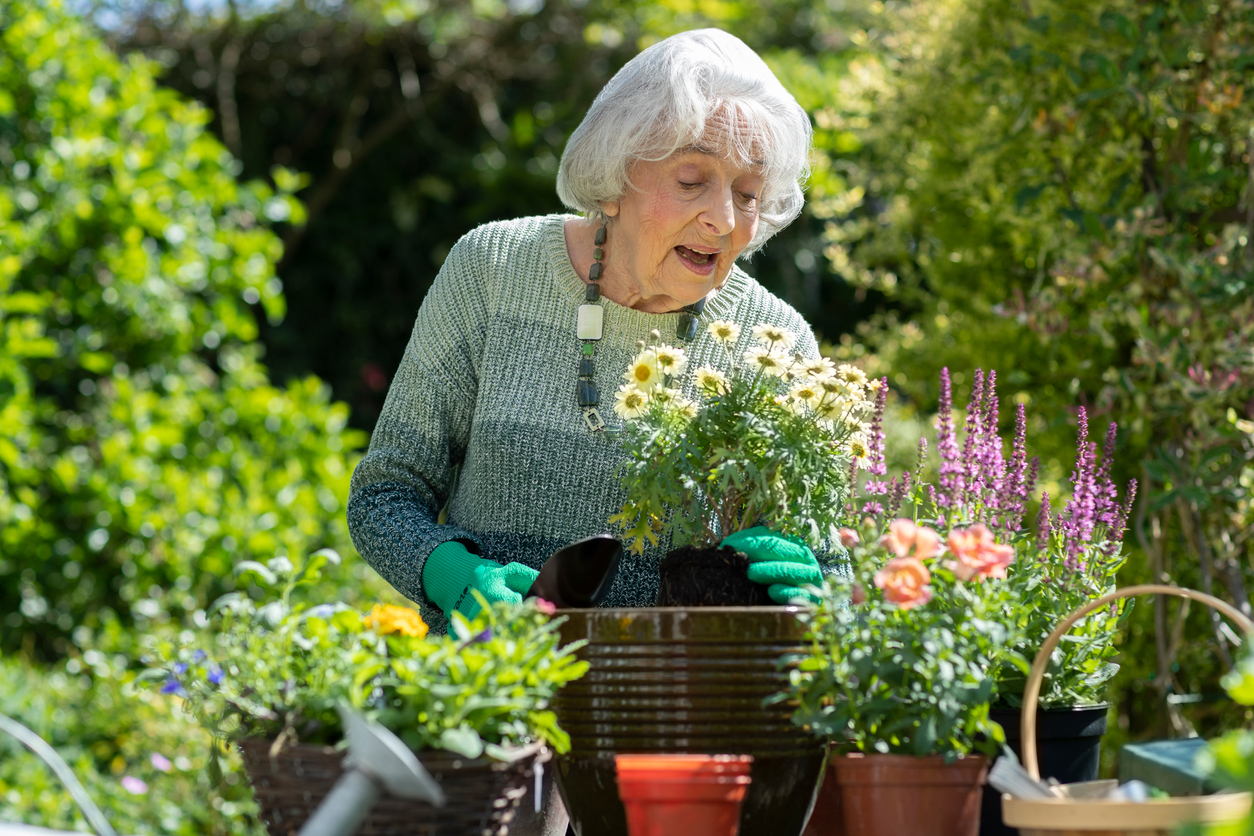At Unique Senior Care, we’re always looking for ways to improve the care we offer. Recently, we welcomed Warwickshire Vision to run a training session on supporting people with visual impairments. It was a hands-on session that gave our team a better understanding of sight loss and how to provide thoughtful, practical help.
Understanding Visual Impairment
Sight loss affects people in different ways. It may mean partial vision, complete blindness, or specific difficulties like glare sensitivity or poor depth perception. Everyone’s experience is different, depending on the condition and how it affects day-to-day life.
People with sight loss can live full, independent lives. What often helps is clear communication and small, sensible changes to the environment. Support from family, friends and Caregivers can make all the difference.


What the Training Covered
Seeing the World Differently
One of the most helpful parts of the session involved wearing simulation glasses. These show how different eye conditions might affect vision. Caregivers took part in practical exercises to see how tasks like reading or walking through a room might feel for someone with sight loss.
This helped build empathy and showed how we can make everyday situations more manageable, just by slowing down, adjusting lighting or describing things clearly.
Building Confidence
Ina from Warwickshire Vision said the training was about building confidence. For Caregivers, confidence comes from understanding what someone is going through and knowing how to help without taking over. The session gave our team time to practise and ask questions, so they feel more prepared in real-life situations.
Guiding Someone Safely
Guiding someone with sight loss is not just about taking the lead. It involves working together and checking what kind of help the person wants. Caregivers were shown how to offer their arm, how to give clear directions, and how to explain what’s coming up, such as steps or a narrow space. These small details help someone feel safe and in control.
Making Environments Easier to Navigate
Lighting and contrast have a big impact on how someone experiences a space. Bright lights and shadows can make things harder to see. The training showed how to create a more comfortable environment by using even lighting, reducing glare and using contrasting colours to highlight edges, steps or hazards.
Everyday Tips for Supporting Sight Loss
Keep things in familiar places. Try not to move furniture or personal items unless needed.
Use clear and simple language. Describe what’s around and let the person know what’s coming next.
Give people time and space. Let them move at their own pace and make their own choices.
Mark key areas. Use colour or texture to make steps, doors or handrails easier to spot.
Encourage the use of technology. Devices such as magnifiers, smart assistants and apps can help with reading, navigation and communication.


Promoting Independence
Caregivers play a vital role in helping people feel confident and in control. That might mean supporting someone to do something for themselves, rather than stepping in. It also means listening to their preferences and being patient when something takes longer.
This kind of support helps people stay independent and continue enjoying the things that matter to them.
Raising Awareness in the Community
Ina shared that raising awareness is just as important as practical support. When others understand what sight loss involves, it creates a more inclusive and respectful environment.
Caregivers are well placed to share what they’ve learned, whether that’s through a conversation with a neighbour or a local community group. A small amount of knowledge can help change attitudes and reduce the stigma people sometimes face.
Final Thoughts
This training reminded us that good care starts with understanding. By learning about sight loss and listening to people’s experiences, we can provide the right support at the right time.
Working with Warwickshire Vision has given us practical tools we can use straight away, and it’s strengthened our commitment to thoughtful, inclusive care. If you're living with, or caring for someone with sight loss and want some extra support or friendly advice, please get in touch.
FAQs Around Sight Loss
Some of the most common include macular degeneration, glaucoma, diabetic retinopathy and cataracts. Each condition affects vision differently.
Clear walkways, consistent furniture placement, good lighting and contrast are all useful. Highlight stairs and avoid clutter.
Yes. These include screen readers, handheld magnifiers, and voice-controlled apps and devices. What’s helpful will depend on the person’s needs and preferences.
Support them to do as much as they can themselves. Offer guidance only when it’s wanted, and check in before stepping in.
Discover More Support & Information For Your Care Journey
Visit our Learning Centre for expert articles, helpful videos, in-depth guides, and answers to common questions - helping you make informed care decisions with confidence.
Explore NowJo joined Unique Senior Care as a Carer in 2011, transitioning from a nursing background. With 25 years of experience in health and social care, including mental health and children with disabilities, Jo has embraced numerous growth opportunities within the company.
Passionate about learning and development, Jo earned a Level 5 Diploma in this field and is committed to equipping teams with the skills needed for outstanding care.
Jo’s qualifications include advanced training in people handling, risk assessment, safeguarding, basic life support, first aid, health and safety, and dementia care. Jo has also completed numerous workshops and CPD courses, such as the SCIE’s Co-Production webinar.
These accomplishments reflect Jo’s dedication to fostering a culture of safety and excellence in care.


